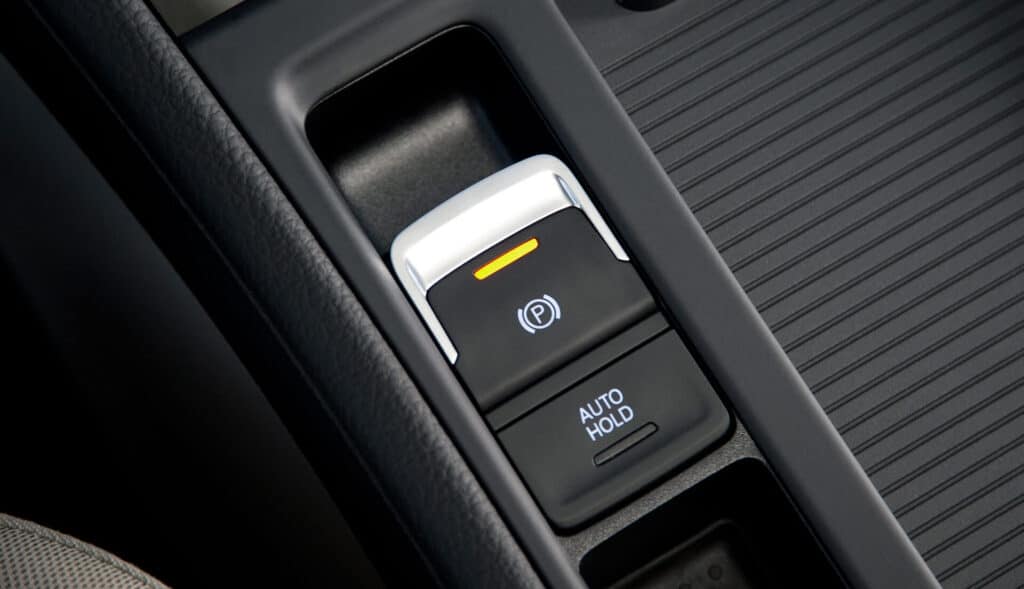The Importance of Parking Brake Maintenance
The parking brake is a critical safety feature in your vehicle, designed to hold it in place when parked, especially on inclines. Proper maintenance of the parking brake is essential for ensuring its optimal performance, reliability, and longevity. In this article, we will discuss the importance of parking brake maintenance and share valuable tips for keeping it in good working order.
Understanding the Role of the Parking Brake
Beyond its primary function, the parking brake can also serve as an emergency brake in situations where the main braking system fails. By applying the parking brake, you can activate the rear brakes independently of the hydraulic braking system, potentially slowing down the vehicle and bringing it to a stop. However, it’s important to remember that the parking brake is not designed for regular or high-speed braking, and relying on it in non-emergency situations can result in reduced brake performance or damage to the system.
Proper use and maintenance of the parking brake are essential for ensuring its effectiveness and prolonging its lifespan. Familiarizing yourself with your vehicle’s specific parking brake system and incorporating regular inspection and maintenance into your vehicle care routine can help prevent potential issues and keep your parking brake functioning optimally when you need it most.

The Components of Your Car’s Parking Brake System
The parking brake system comprises key components such as the parking brake lever or pedal, cables linking the lever to the brakes, and the brake shoes or pads that activate when the parking brake is engaged. Typically, the parking brake targets the rear wheels, utilizing either a distinct set of brake shoes or collaborating with existing rear brake parts.
This system ensures that your vehicle remains stationary when parked, particularly on inclines. Regular inspection and maintenance of these components are crucial for maintaining optimal performance and safety.
By understanding the parking brake system’s components and their functions, you can take better care of your vehicle and ensure its reliability throughout its lifespan.
Common Parking Brake Issues and How to Identify Them
A stretched or damaged cable can hinder the parking brake’s ability to effectively hold the vehicle in place. This can result from frequent use, poor maintenance, or exposure to harsh environmental conditions. Inspecting the cables for fraying, rust, or damage, and replacing them if necessary, can help ensure your parking brake functions properly.
Worn brake shoes or pads can also diminish parking brake performance. Over time, brake shoes or pads may wear down and require replacement. Pay attention to any unusual noises, such as squeaking or grinding, when using the parking brake, as these can indicate worn-out components. Regularly checking the brake shoes or pads for wear and replacing them when needed can prolong your parking brake system’s life.
Seized or corroded components may also impact parking brake functionality. If you live in an area with high humidity or frequent exposure to road salt, these conditions can contribute to corrosion and seizing. Inspect the parking brake components for signs of rust or corrosion, and lubricate or replace any affected parts to maintain optimal parking brake performance. Regular maintenance and addressing these common issues can help ensure the longevity and reliability of your parking brake system.
Regular Parking Brake Inspection and Maintenance
To keep your parking brake in optimal condition, it’s essential to perform regular inspections and maintenance. This includes checking the cables for signs of wear or damage, lubricating moving parts to prevent corrosion, and adjusting the brake as needed to ensure proper tension. Consult your vehicle’s owner’s manual for specific maintenance recommendations and intervals.
When to Use Your Parking Brake: Best Practices
It’s crucial to use your parking brake whenever you park your vehicle, even on flat surfaces. This practice helps maintain tension in the cables and keeps the brake components engaged, preventing them from seizing or corroding over time. Additionally, using the parking brake can reduce strain on the transmission’s parking pawl, prolonging its lifespan.
The Importance of Proper Parking Brake Adjustment
Proper adjustment of your parking brake is essential for ensuring its effectiveness. Over time, the cables can stretch or the brake shoes or pads can wear, resulting in a loose or ineffective parking brake. Regular adjustments can help maintain the correct tension and ensure that the parking brake holds your vehicle securely when engaged.
Replacing Worn Parking Brake Components
Like any other part of your vehicle, the components of your parking brake system will wear over time and may require replacement. If you notice signs of wear or malfunction, such as difficulty engaging the parking brake or a loose feel when applying it, consult a professional mechanic to inspect the system and replace any worn parts as needed.

The Impact of Environmental Factors on Parking Brake Maintenance
Environmental factors, such as exposure to moisture, salt, and extreme temperatures, can contribute to parking brake wear and corrosion. Regularly inspecting and cleaning the parking brake components, as well as lubricating moving parts, can help protect them from environmental damage and prolong their lifespan.
Conclusion: Ensuring Your Parking Brake’s Reliability and Performance
Proper maintenance of your car’s parking brake is essential for ensuring its reliability, performance, and safety. By understanding the role and components of the parking brake system, regularly inspecting and maintaining it, and following best practices for its use, you can help ensure that your parking brake remains in optimal condition and serves you well throughout the life of your vehicle.
